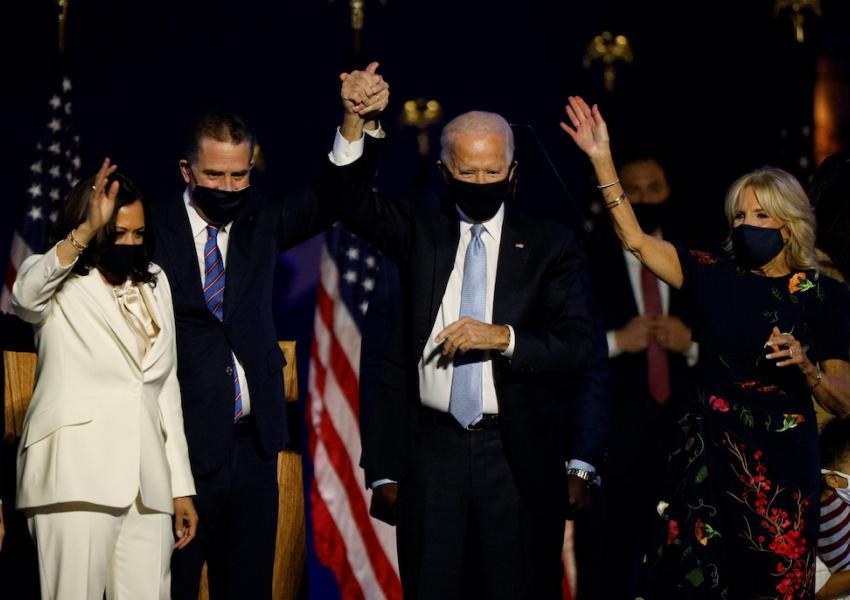
Iran-US Relations Uncertain As Biden Takes Office
Although President-Elect Joe Biden has said that his administration will return to the 2015 nuclear deal with Iran, one day before Biden's inauguration, it does not seem to be a goal easy and quick to achieve.
Antony Blinken, Biden's nominee for the State Department sounded a note of a caution during his confirmation hearing on Tuesday. Under questioning, Blinken said, "we're some ways" from compliance with JCPOA, that "there is a lot Iran would need to do" to come back into compliance, and that it's "not something that's happening tomorrow or the next day." He also agreed to discuss ideas with Republican senators about how to deal with Iran and possible alternatives to the JCPOA, or the 2015 nuclear deal.
Biden's nominee for Director of National Intelligence (DNI) Avril Haines also said during her nomination hearing that it would be some time before Tehran returned to strict compliance with the 2015 Iran nuclear deal and the Biden administration might itself return to the agreement, which outgoing President Donald Trump abandoned in 2018.
As the spokesman for the Iranian government Ali Rabiei complained on Tuesday [Jan. 19] that Tehran has still not received any message from Biden's aides, a report by the Washington-based Foundation for Defense of Democracies (FDD) offered policy options to the new US administration that call for avoiding past mistakes of offering sanctions relief to Iran before “a comprehensive” agreement can be made about all issues related to the policies of the Islamic republic.
While reiterating Iran's demands from the Biden administration on Tuesday, Rabiei did not mention that Tehran has been testing ballistic missiles and boosting its enrichment capacity during the past week. One of the ballistic missiles landed 20 miles from a commercial vessel in the Indian Ocean and 100 miles from a US aircraft carrier.
Nonetheless, Rabiei spoke in a way as if it is the United States that needs to return to the nuclear deal called the Joint Comprehensive Plan of Action (JCPOA). He reiterated that the US should lift all the sanctions on Iran before joining the JCPOA talks.
He did not mention concerns that the US, European countries and Iran's neighbors have over Tehran's destabilizing interventions in Iraq, Syria, Yemen, Lebanon, and Afghanistan. Nor did he mention global concerns over Iran's ballistic missile.
As the FDD's mark Dobowitz and Richard Goldberg have observed in the Iran section of their report, “Over the last two years, the Trump administration’s 'maximum pressure, campaign … continued to drain financial resources from the Islamic Revolutionary Guard Corps (IRGC) and to squeeze Iran’s leaders to make a choice between regime survival and negotiations."
However, statements by top Iranian leaders during the past months indicate that they want the regime's survival, but they believe no negotiation is needed between Iran and the United States.
Meanwhile, they continued potentially provocative missile and drone tests even the day before Joe Biden's inauguration, while their media claimed several individuals in Biden's foreign policy team who have been part of previous talks with Tehran have a “favorable view” toward Iran.
This comes while international media say troubles at home may change Biden's hand in the nuclear talks with Iran. According to the Associated Press, "Biden and his team of veteran negotiators will face doubts about how much influence the U.S. can bring to bear on any foreign crisis during political violence at home and other trouble."
While Iran has welcomed Biden's statement about his interest in returning to the JCPOA, Iranian officials tend to constantly ignore the fact that he has also said he wants to address "a range of Iran's action in the Middle East, including its ballistic missiles and intervention in neighboring countries."
During the weeks to come, while Biden will be busy sorting out problems related to US domestic political crises, pressures will mount to warn him about the perils of returning to a deal with Iran mindless of the changes that have taken place since 2015 to harden Iran's stance on regional issues.
Meanwhile, the FDD paper called on the US Congress to "Schedule quarterly classified briefings by senior administration officials to review Iran policy," and "Request periodic testimony by the Financial Crimes Enforcement Network to assess the risks of money laundering and terror finance within Iran’s financial sector," among other measures.
While during the past months Iran has been saying that it will return to full compliance with the JCPOA if the United States does this first, a source close to the Biden's team told reporters that "If Iran returns to compliance with the deal, we will do so as well. It would be a first step."
It appears that both Iran and the United States want the other side to return to the full compliance of the nuclear agreement first. But this is not their only problem. All other issues aside, Iran will find it hard to comply before getting concessions from the US as its officials have been bragging about not bending before the US, and Washington has no reason why it should return to full compliance of the deal before its other demands are met.








